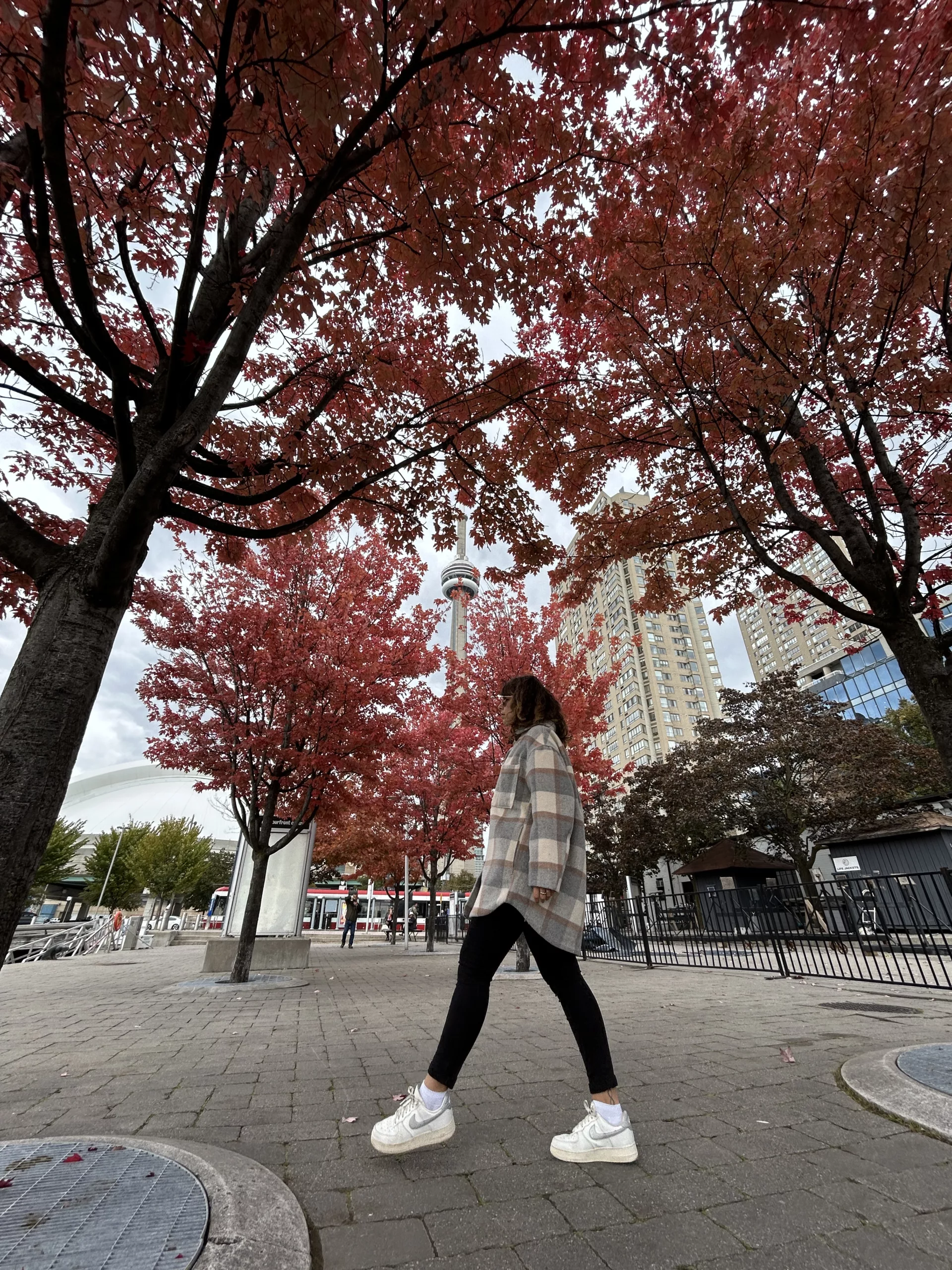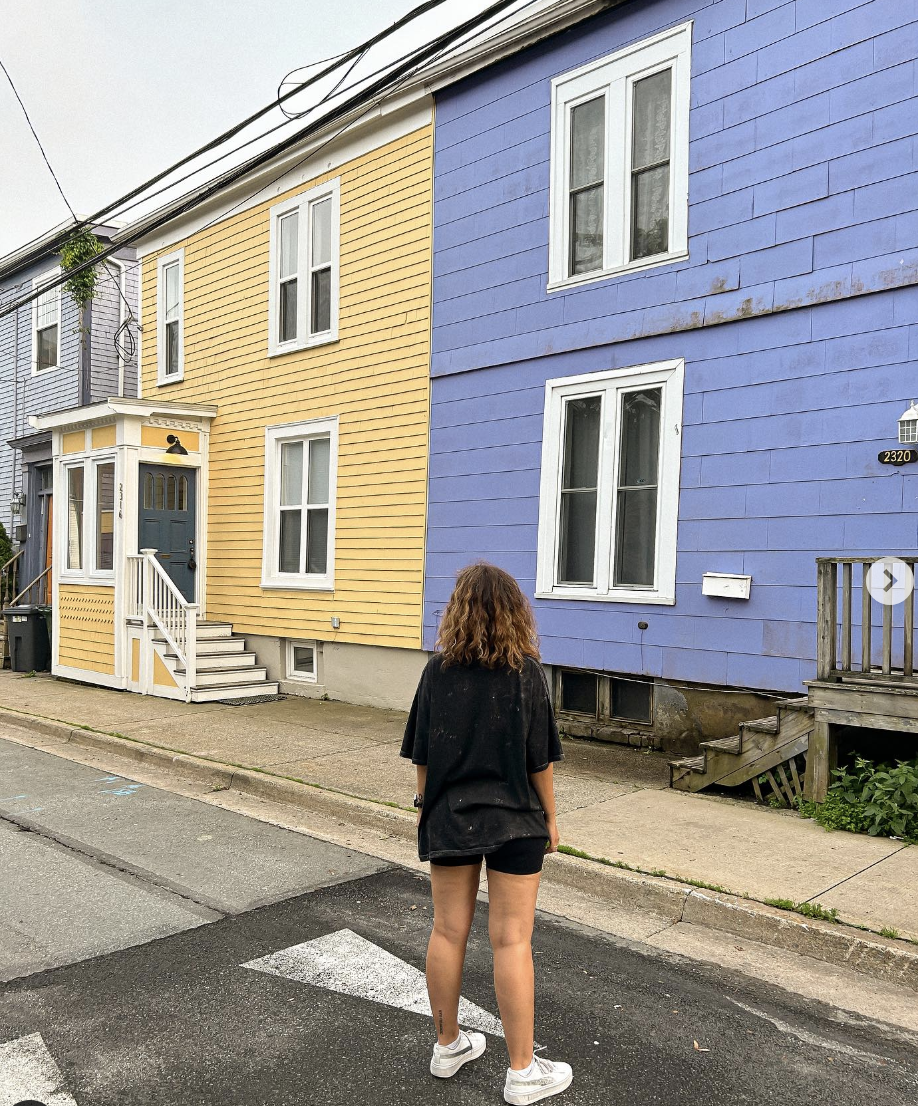Through social media, you can see what life is like in another country, like never before. You see people leaving everything behind to move to the other side of the world, as I did in 2014. You wonder. But you’re not sure if it’s an option for you. Well, there are many ways to experience life abroad. Starting with the duration: many people leave with the idea of settling down forever, but you may well decide to live somewhere for a fixed period of time. In this article, I’m going to introduce you to several ways to experience life abroad.
We’re going to talk about very different options. Some more structured, others more flexible. Options for students, for young professionals, for families or even for retirees. In Canada, like me, but not only. I’m going to cover as much information as I can to help you realize your dream of an experience abroad.
I’m not going to talk about the more permanent or definitive options such as permanent residency in Canada. If this is a subject that interests you, I recommend you read this article in which I share my experience of how I obtained permanent residency in Canada. The advantage of all these options is that they are temporary and will allow you to discover different places in the world. With the idea of continuing to discover, learning a new language or finding a place to settle down for the long term, for example.
You can also find a video version of this article on my Youtube channel by clicking here.

WHV
What is the WHV?
WHV stands for Work Holiday Visa. It’s an agreement between several countries, including France, and other countries around the world. Under this agreement, you can obtain a visa to stay in France longer than with a tourist visa. The latter is usually valid for a maximum of 3 months, depending on the country. Not only can you stay longer, but you can also work at the same time. The length of time you need to stay in the country varies from country to country. We’re talking anywhere from a few months to 24 months. The big advantage of this visa is that you can travel or work, or combine the 2.
Which countries offer a WHV for French citizens?
The list is rather long, which is good news:
- Australia, from 18 to 35 years old. Can be renewed 3 times if you meet the conditions.
- Canada, ages 18 to 35. Only one WHV possible.
- New Zealand, ages 18 to 30. Only one WHV possible.
- Argentina, ages 18 to 35. Only one WHP possible..
- Brazil, ages 18 to 30. Only one WHV possible..
- South Korea, ages 18 to 30. Only one WHV possible..
- Chile, from 18 to 30 years old. Only one WHV possible..
- Colombia, from 18 to 30 years old. Only one WHV possible..
- Ecuador, from 18 to 30 years old. Only one WHV possible.
- Hong Kong, from 18 to 30 years old. Only one WHV possible..
- Mexico, from 18 to 30 years old. Only one WHV possible..
- Peru, from 18 to 30 years old. Only one WHV possible..
- Japan, ages 18 to 30. Only one WHV possible..
- Taiwan, ages 18 to 30. Only one WHV possible..
- Uruguay, from 18 to 30 years old. Only one WHV possible..
Conditions for obtaining a WHV
They vary from country to country. Here’s a list of things to consider.
- Age: this varies according to destination and nationality.
- savings: you’ll need to prove that you have a certain amount in your account. The amount varies from destination to destination and is only an indication. I always recommend having more.
- the validity period of your current passport: if your passport only lasts 6 months but your visa is for 12 months, immigration will match the validity of your passport. Renew it before you apply.
- insurance: host countries will require you to have insurance. This is to ensure that you can be taken care of if anything happens to you. Without it, many countries will refuse you entry. Be sure to check that your insurance covers your WHP.
- application: it varies from country to country. In Canada, it’s a draw. Things have changed in recent years as the destination has become more popular. For other less popular destinations, you can register and be chosen very quickly.
The benefits of WHV
- You can explore a country by combining travel to discover and work to replenish the coffers. It’s a good balance!
- In terms of visas, it’s a good way to enter Canada, for example. If you want to stay in Canada, you can continue your French-speaking mobility or apply for permanent residency, for example, if you meet the conditions.
- The final advantage is the flexibility this visa offers you.

Erasmus
Another option for gaining experience abroad during your student life: Erasmus. I actually considered this option during my foreign language study year at university after seeing L’Auberge Espagnole. But as I didn’t like university, this opportunity quickly had to be eliminated from my list of options. But if you’re a European student, it’s a great option. You can study in one of the partner countries for a semester or a year. If you want to try out different destinations, you can choose to study at different universities. As long as the total duration does not exceed 12 months per study cycle.
The benefits of Erasmus
-
It allows you to try things out without too much commitment and without falling behind in your studies.
- But it also gives you a certain framework and opportunities to meet people more easily while you’re still a student.
Find out more on the Erasmus website. You can also get information from your university, and probably find Facebook groups of students sharing their experiences.
Spend a school year abroad
I have the impression that this option is better known abroad than in France. You can spend a school year abroad. I’ve had 3 cases in my school. One girl went to the United States and 2 Danish girls went to my school. The girl who went to the United States had to pick up where she left off. Her year abroad didn’t count towards her curriculum in France.
I think it’s a great idea and I considered it too. But I think I was too young and didn’t have the necessary maturity. You can study in a foreign high school for a year. I dreamed of going to an American high school and having a locker like in the movies. Well, I couldn’t do it, but today my boyfriend is Canadian, and he has sweaters from his school here in Toronto. I’m borrowing them, telling him they’re my equivalent of the high school star jackets the girls wore in the movies.
Anyway, I digress! My advice is to ask your school’s language teachers what programs they recommend. They usually know about them and can even put you in touch with students who have already done so.
The benefits of school years abroad
- The guidance offered by this program. Especially at this age. You won’t be on your own, and accommodation is usually with a family.
- The fact that it’s accessible in high school. Other options are only available after you’ve reached the age of majority.

Internship abroad
Internships are a great way to gain experience abroad. There’s no commitment. Internships let you explore and see how you feel abroad. If you like the country or city you’re visiting. It also allows you to refine your desires and needs by discovering new places.
Not all programs offer an internship abroad option. This was the case for me in the 2 year- International Trade program, and it’s also the case in other programs. But you do have the option of doing your internship abroad, even if the program doesn’t emphasize it. The only problem is that you’ll have less supervision if you’re the exception in your class. You should also be aware that rules vary from country to country. In Canada, for example, you need a visa and unpaid internships are forbidden.
The benefits of internships abroad
- You benefit from being supervised without it being too restrictive, so you still enjoy a certain degree of autonomy.
- Depending on the type of internship, you will be paid, which will help finance your stay.
Being Au Pair abroad
You’ll probably smile, but I’ve also considered this option. In fact, it was the first option I considered as an adult. I even ordered the brochures at the time. But I think the WHV was the best choice for me. Except that at the time I didn’t know it existed.
What does it mean to become an au pair?
It’s the opportunity to move in with a host family to take care of the children and certain daily tasks, in exchange for a roof over your head. Depending on the family, there may also be other benefits. A car, vacations with the family, lessons in the local language to improve your language skills.
Please note that you must be between 18 and 30 years of age, and you must go through an organization. You’ll find several if you type au pair + the country you’re interested in. It’s very common in the United States, and I know several people who did it around me when I was younger.
In a few words, you need to register and create a profile. On the other hand, families also have profiles. Depending on your profiles, you’ll have interviews with the families, to see if you’re hooked and if you plan to live this adventure together. Once you’ve found your family, the process continues to finalize the details. I’ve shortened the story for you, but it can take months to find a family and then organize the departure.
The benefits of being an au pair abroad
- Cost. You don’t have to pay for accommodation, you also have pocket money. The family also pays for your ticket. It’s less expensive than going on a WHP program, for example.
- The community: many people leave as au pairs every year. You can benefit from the experience of people who have done it before you, of those who are going through it at the same time. There are even organized stays between au pairs.
- You can do this for several years, staying with the same family or changing.
The disadvantages of being an au pair abroad
- You have to be ready to live with another family. And understand that it’s a job. You’ll have to look after children and depend on other people’s schedules. So you won’t have the same freedom as with other options.
Humanitarian or volunteer travel
Humanitarian travel or volunteering allows you to experience life abroad in a different way. You can join an organization to help out in another country. You can do this on your own by joining an organization, but there are also programs organized by certain companies. This option can be quite physical, perhaps building houses or doing manual labor. If this isn’t possible for you, you can still help! You can sponsor a child abroad, like me for example. Since September 2020, I’ve been sponsoring a little girl in Jamaica, and I’ll tell you all about it in this article.
The advantages of going on a humanitarian or volunteer trip
- The opportunity to get up close and personal with the local population and discover new things.
- The opportunity to be useful and help the locals.
- The duration is flexible, depending on the mission.
- You can combine the 2: volunteering and traveling.
- Be supervised by an association/organization that knows the area.

Doing a replacement job abroad
In some professions, you can work in another country. You can either replace someone who is leaving for a certain period of time. Or you can lend a hand during a busier period.
I discovered this option thanks to my cousin. In her case, she didn’t do it abroad, but in the French overseas departments and territories. But I wanted to include it because there are several options. And also because, even if it’s in France, it allows you to discover a new culture and new landscapes. In her case, she’s a speech therapist. She’s had the experience twice. Once for a year, which she repeated. A second time for a month. And as I dug a little deeper, I saw that it was possible, for example, for retired teachers to go to certain countries.
For research, I can give you some hints from her experience. She told me that they have Facebook groups where people post their ads to be replaced. Or advertisements for replacement positions. Obviously, your diploma must be recognized in the country you want to visit.
The benefits of doing a replacement abroad
- There’s no commitment, and the duration is flexible depending on the situation.
- This allows you to combine work and travel.
- You can visit several places by carrying out several experiences like this one.
- The cost is reduced by working on the spot, but also because sometimes, in addition to the job, you can negotiate a car or accommodation.
Language study abroad
This is perhaps one of the best-known options. Go on a language study abroad trip. I have a lot of followers on Instagram who come to Toronto for this reason. In this case, you go to a foreign country for a set period of time. Between a few weeks and a year, for example. While you’re there, you’ll have a mix of courses and activities. Free time too to explore and enjoy time with the new friends you make.
The advantages of language study abroad
- This option is highly supervised, with an organization behind you whose job it is to prepare these experiences.
- It’s also a fairly intensive way of learning the language.
- The possibility of meeting people through the many activities, which is easier than in WHV where you’re completely on your own.
- Participants come from all over the world. You’ll also get to meet people from all over the world.
The disadvantages of language study abroad
- The cost can be quite high.
- You’ll be staying with a family. This may not be ideal for some people.
- Not all schools are on the same level. I get feedback from my students and some schools are really to be avoided. If you’re interested in this topic, let me know and I may contact the Toronto schools to find out more.
VIE/VIA (Volontariat International en Entreprise/Volontariat International en Administration)
It’s impossible not to include VIE/VIA in this list. And guess what? Yes, you can see it coming … I also considered this option. I really wanted to experience life abroad. The funny thing is that I considered all the temporary options. I’ve been living in Canada for almost 10 years now. That I became a Canadian last year. Ah, life is full of surprises.
But I digress! What is a VIE/VIA? It’s a professional assignment abroad with a French company that has offices abroad. You can find all available VIE job offers on the Business France website. This is a highly coveted option, as places are very expensive. Sometimes, having experience in a company in France before applying increases your chances of success.
Big companies like LVMH and L’Oréal (there are plenty of others, but I can’t list them all, of course) offer VIE programs.
The duration varies from 6 to 24 months, and you need to be between 18 and 28 years of age to take part.
The benefits of a VIE/VIA placement
- With VIE/VIA, you’re paid in euros. Depending on your host country, this gives you quite an advantage in terms of purchasing power.
- You are tax-exempt in France for the duration of your VIE.
- You keep your social security coverage in France. And that’s a big advantage.
- According to the statistics I found, 92% of people are hired after their VIE experience. This is encouraging if you want to stay longer in your host country. Beware, though, you’ll often move on to a local contract after the VIE.
- You’ll already have a job, which is a big advantage over the PVT, for example.
Language assistant abroad
It’s probably the option we all knew about in Première without even realizing it. In your middle or high school, you may have had language assistants to help you learn English or Spanish. I’ve had several, but only one made an impression on me and I’ve seen her several times since. Carmen, who came from Mexico, regularly came back to France to see our teacher at the time. It really makes for great stories.
Let me explain: you’re going to a middle or high school. You’re going to help students improve their language skills, but also discover the culture. You are often housed by the school.
A little story: when I moved back to France in 2015, I organized events to create links between the many language assistants in Valencia and the locals. It was great, with lots of girls from the USA, people from Italy and Denmark. And I can see from the networks that most of them are still in touch even after returning to their home countries. When you have such powerful experiences, you make friends for life.
The benefits of becoming a language assistant abroad
- Once again, this is a supervised option.
- As with the Au Pair program, you have access to a network of like-minded people across the country. So you can visit them and take part in group activities.
- You can extend the experience if you really enjoy what you’re doing.
- Not only are you helping the locals to improve your language, but you’re also improving the language of the country as a whole, since all your life away from home will be in another language.
Civic service abroad for French/Europeans
Let’s finish by talking about a lesser-known option. I don’t really know anyone who has done it. It’s a program run by the French government. You can take part in missions lasting between 6 months and 1 year. The aim of these missions is to give young people access to mobility abroad.
They offer a variety of assignments. You can carry out this experience in 10 fields, including international. Click here for more info on this area.
The advantages of doing civic service abroad
- It’s a supervised solution.
But beware: according to the testimonials I’ve found, the volunteer is responsible for quite a few expenses.
Find out more about civic service abroad.
Of course, the list is not exhaustive, and there are many other ways to experience life abroad. The most important thing is to find an option that suits you. Don’t hesitate to share your experience in the comments.















